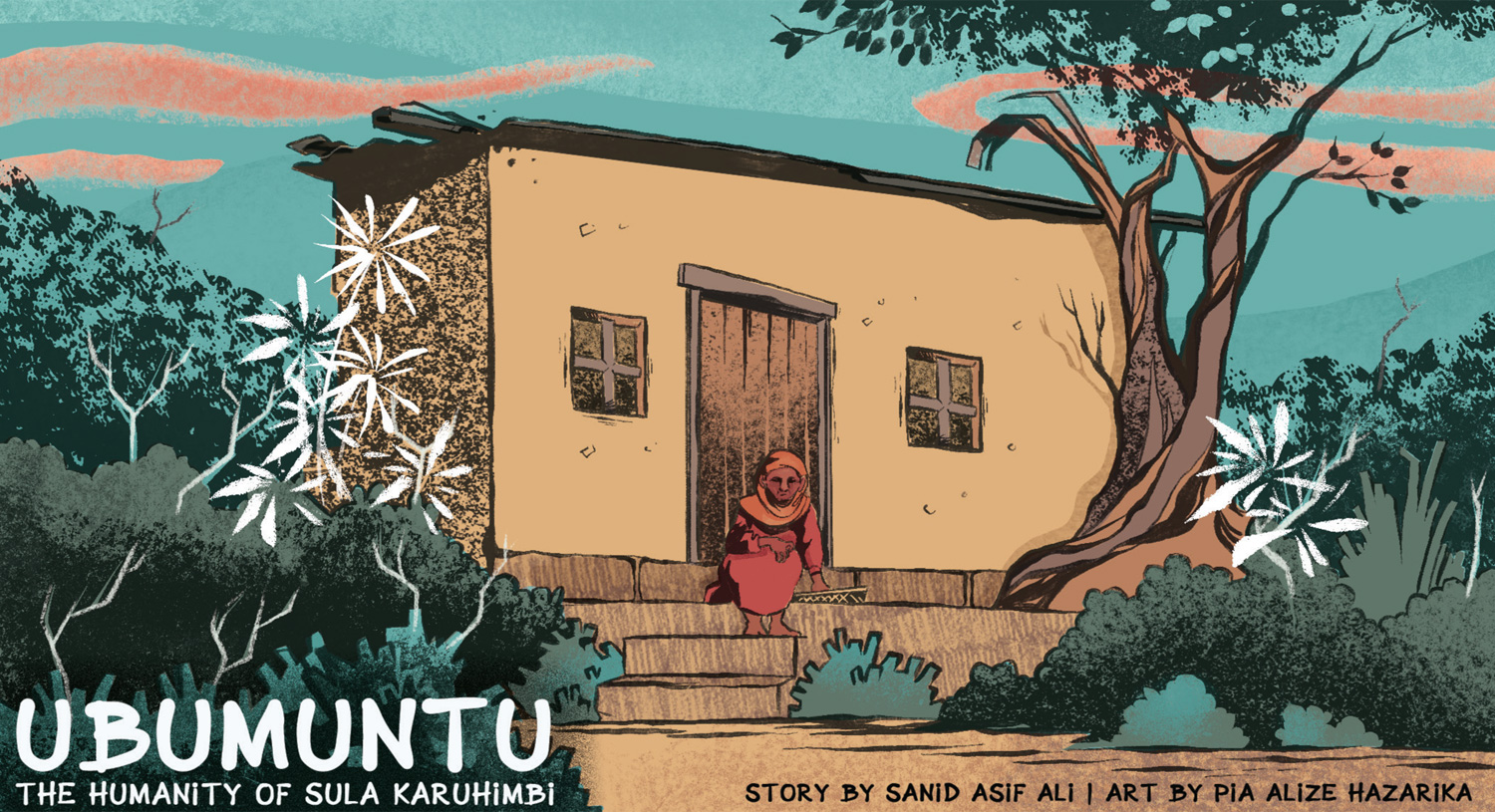
Vol 3 No 1 | Apr-Jun 2023
Ubumuntu
Story by Sanid Asif Ali | Art by Pia Alize Hazarika
The Rwandan genocide
The Rwandan genocide that lasted from April to July 1994 occurred during the Rwandan Civil War. Around 800,000 members of the Tutsi ethnic minority community were killed by armed Hutu militia during this period.
The Civil War was sparked off when the Rwandan Patriotic Front (RPF), a rebel group composed mostly of Tutsi refugees, invaded northern Rwanda in 1990. In 1992, a peace treaty called the Arusha Accords was signed between the Rwandan government led by Hutu president, Juvenal Habyarimana, and the war eased off. But the fragile peace was shattered when Habyarimana was assassinated, his aircraft shot down by a missile near Kigali, the capital of Rwanda, on April 6, 1994. Who exactly was behind this attack is still disputed, but it became the catalyst that triggered the Rwandan genocide.
https://www.bbc.com/news/world-africa-26875506
Misinformation and the killings
Radio Télévision Libre des Mille Collines (RTLM) was a Rwandan radio station that projected hate propaganda against Tutsis and moderate Hutus. They operated from July 8, 1993, to July 31, 1994. It is widely believed that RTLM played a direct role in inciting the Rwandan genocide by creating racial tension among Hutus and Tutsis. In an attempt to dehumanise the Tutsis, they were referred to as ‘cockroaches’ by RTLM in their broadcasts. RTLM was also aided by the staff and facilities of Radio Rwanda, a government-owned agency to spread misinformation and hatred.
https://blogs.library.duke.edu/rubenstein/2013/05/10/radio-in-the-rwandan-genocide/
Sula Karuhimbi in real life
This story in Comixense is based on the real-life story of Sula Karuhimbi, a Rwandan healer who saved hundreds of lives from the Hutu militia during the genocide. Sula says she saved so many people that she doesn’t remember most of their names. She gave shelter to as many as 100 Tutsis, many moderate Hutus, and some foreigners as well. She gave them food from whatever she cultivated from her plot of land.
https://qz.com/africa/1498815/rwandan-hero-sula-zula-karuhimbi-dead-at-106
https://genocidearchiverwanda.org.rw/index.php?title=Kmc00023-sub1-eng.mp4-glifos
Nyabingi
The belief in Nyabingi as a spirit has a long and varied history among the peoples of northern Rwanda, south-western Uganda, and eastern Zaire. Nyabingi’s origins are linked to Kitami, Queen of the Mpororo Kingdom (in modern-day southern Uganda and northern Rwanda) whose murder by her husband Murari was followed by a series of natural disasters and other catastrophic events. After that, a belief emerged in the region that anything bad that happened was due to Nyabingi’s wrath and anything good was due to Nyabingi’s blessing.
Many political leaders have used Nyabingi to ascertain their authority. Muhumusa was one such leader who was influential in Rwanda from 1850-1950. She claimed spiritual authority over Nyabingi and was able to raise protesters against European colonial forces on that basis.
https://www.persee.fr/doc/cea_0008-0055_1974_num_14_53_2668
https://uk.amateka.net/the-nyabingi-cult/
https://www.worldhistory.biz/sundries/50101-nyabingi-cult-and-resistance.html
Hotel Rwanda
Hotel Rwanda is a 2004 English-language film directed by Terry George based on the Rwandan genocide. The film documents the real-life efforts of Paul Rusesabagina to save the lives of his family and more than 1,000 other refugees by providing them with shelter in Hotel des Mille Collines. It was nominated for three Academy Awards (Oscars) – Best Actor for Don Cheadle, Best Supporting Actress for Sophie Okonedo, and Best Original Screenplay for Keir Pearson and Terry George. It was also nominated for a large number of other important cinema awards, and won several of them.
Later developments suggest that the depiction of Paul Rusesabagina in the film was less than authentic, and led to the development of his image as a humanitarian, which he then exploited to fulfill his political ambitions.

